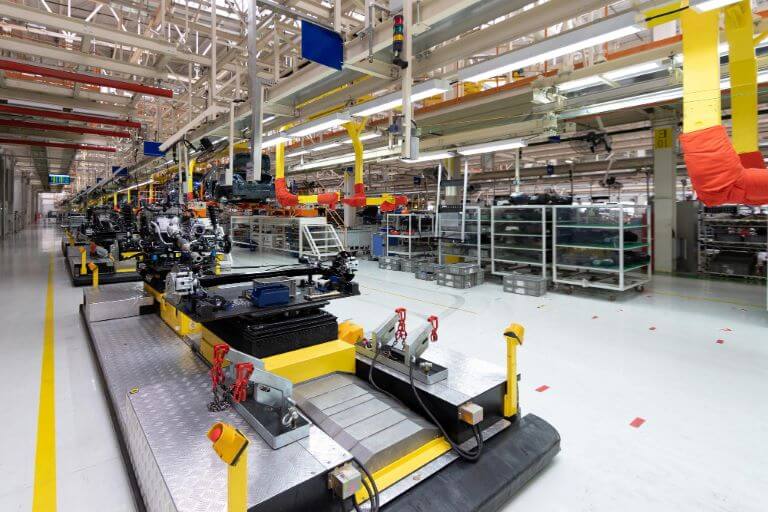Sustainability has become more than just a buzzword; it’s now woven into the fabrics of every industrialized society, with organizations looking for ways to reduce their carbon footprint and think long term. As the world grapples with the environmental impacts of manufacturing, the role of used machinery in promoting sustainable practices becomes increasingly significant. Integrating second-hand machinery into manufacturing processes not only conserves resources but also offers economic and operational advantages.
1. Reducing Environmental Impact
Manufacturing new machinery requires substantial resources, including raw materials, energy, and water. By opting for used machinery, you can significantly reduce these resource demands. When you repurpose existing equipment, you minimize the need for raw materials like steel and aluminum, which are both energy-intensive to produce and extract. This reduction in material consumption directly translates to lower carbon emissions and less environmental degradation.
Used machinery also helps mitigate waste. Disposing of old machinery contributes to landfill overcrowding and environmental pollution. By giving these machines a second life, you divert waste from landfills and reduce the environmental footprint of your manufacturing operations.
2. Economic Benefits
Investing in second-hand machinery can lead to considerable cost savings. For example, new machinery such as lathes and surface grinders often comes with a high price tag, not to mention the costs associated with training, installation, and potential downtime during integration. But you can get used ones at far lower prices, with the quality, function, and durability still intact. Typically, used surface grinders can serve you for years, as these machinery possess outstanding durability. There are reputable outlets where you can find such equipment that are still in pristine condition.
Moreover, used machinery often comes with a proven track record. You can assess the performance history of the equipment and ensure it meets your operational requirements. This reliability reduces the risk of unexpected breakdowns and maintenance costs, contributing to smoother, more predictable production cycles.
3. Faster Implementation
One of the often-overlooked advantages of used machinery is the speed of implementation. New machinery might require a lengthy lead time for manufacturing, customization, and delivery. Used machinery, on the other hand, is typically available for immediate purchase and installation. This rapid deployment can be crucial in meeting tight production schedules or responding quickly to market demands.
Additionally, second-hand machinery can help bridge the gap during periods of equipment downtime. When your primary machines require maintenance or upgrades, having used machinery on hand ensures that production continues without significant interruptions. This continuity is vital for maintaining customer satisfaction and meeting delivery commitments.
4. Flexibility and Scalability
Used machinery provides a flexible and scalable solution for your manufacturing needs. As your business grows or production requirements change, you can easily acquire additional used equipment to expand your capacity. This adaptability allows you to respond dynamically to market fluctuations without the significant investment associated with purchasing new machinery.
This versatility enables you to diversify your product offerings or enter new markets with minimal additional investment. By leveraging the flexibility of used machinery, you can remain competitive and innovative in a constantly evolving industrial landscape
5. Supporting Circular Economy
The concept of a circular economy emphasizes the importance of reusing, recycling, and repurposing materials and products to extend their lifecycle and reduce waste. Incorporating used machinery into your manufacturing process aligns with this principle, fostering a more sustainable and responsible approach to industrial production.
By participating in the circular economy, you contribute to a more sustainable industrial ecosystem. You reduce the demand for new raw materials, lower energy consumption, and minimize waste generation. This commitment to sustainability not only benefits the environment but also enhances your brand reputation and appeal to eco-conscious consumers.
6. Enhancing Corporate Social Responsibility (CSR)
Embracing second-hand machinery is a tangible demonstration of your commitment to corporate social responsibility (CSR). Consumers and stakeholders increasingly expect companies to adopt sustainable practices and reduce their environmental impact. By integrating used machinery into your operations, you showcase your dedication to sustainability and responsible resource management.
This commitment can enhance your brand image and differentiate your business in a competitive market. Customers are more likely to support companies that prioritize sustainability and demonstrate a genuine concern for the environment. Additionally, showcasing your efforts in sustainability can attract like-minded partners, investors, and employees who share your values and vision.
Potential Challenges
While the benefits of using used machinery are clear, we must acknowledge and address potential challenges. First off, you must ensure the quality and reliability of used equipment, and this requires thorough inspection and maintenance. To reduce your risks, you’ll need to partner with reputable suppliers and invest in regular maintenance.
Another challenge might be the integration of used machinery with existing systems and technologies. To overcome this, you can work with experts who specialize in retrofitting and customizing used equipment to fit your production processes seamlessly.
Wrapping Up
Incorporating used machinery into your manufacturing operations offers a multitude of benefits, from reducing environmental impact to achieving significant cost savings and operational efficiency. The decision to leverage this sustainable approach can enhance your business’s bottom line while also contributing to a more responsible and circular industrial ecosystem.

